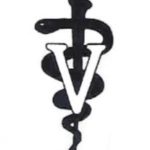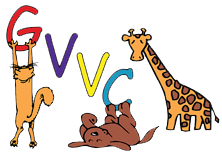 We are all part of this big complicated world. There is currently a world wide effort to promote cooperation and collaboration between veterinarians, human health professionals, and scientific professionals. It is a continuation of efforts in the veterinary world to educate the public about zoonotic and infectious disease issues. The public needs to realize that how we treat our animals, from the chemicals we use to kill insects to our enthusiasm about dog parks and doggy day care have a direct influence on our future.
We are all part of this big complicated world. There is currently a world wide effort to promote cooperation and collaboration between veterinarians, human health professionals, and scientific professionals. It is a continuation of efforts in the veterinary world to educate the public about zoonotic and infectious disease issues. The public needs to realize that how we treat our animals, from the chemicals we use to kill insects to our enthusiasm about dog parks and doggy day care have a direct influence on our future.
Over the past few decades, more and more correlations between human and veterinary medicine have been found. The thought is that veterinarians can contribute to human medicine by developing wellness strategies and protocols that can be extrapolated for use in people. The ecosystem, animal well being, and human health, particularly mental health (as evidenced by the human-animal bond) are all dependent on each other.
People and animals share many health risks. It is important for us, as pet owners, to understand our responsibilities. Many of the intestinal parasites that are present in untreated dogs and cats are transmissible to people. They are in the soil and in the pet’s stool. Regular, routine fecal tests help ensure that not only are our pets safe, but our families, as well. Infected stools that are not picked up release eggs back in to the soil and sometimes into water sources. Although we have safety measures in place, each year hundreds of children are diagnosed with intestinal parasites; something that could be easily avoided in most cases. As unpleasant as it may seem,PICK UP THE POOP, and routinely worm any pet that goes outside. Indoor pets aren’t exempt either-did you know that potting soil frequently contains round worm eggs. Do you always wear gloves when repotting your plants-I know that I don’t. Be cautious when allowing your dog to play at daycare or the park. Although you may pick up after your dog, not everyone does.
Stay tuned for further updates.
